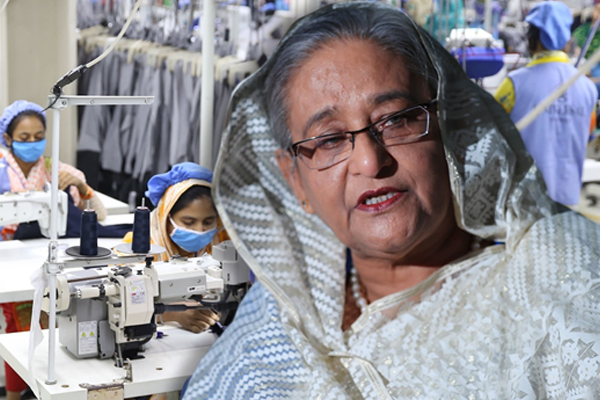|
Bangladesh goes to bat for textile industry as buyers scrap orders
With the coronavirus pandemic pummeling Bangladesh's textile industry, a two-pronged campaign is underway to salvage the country's biggest export earner by cajoling big Western clothing retailers to honor previous purchase commitments. The U.K.'s Edinburgh Woolen Mills Group, whose key brands include Peacocks, Jaeger, Bonmarche, and Austin Reed, has canceled orders worth more than $30 million from nearly three dozen Bangladeshi factories, despite entreaties from the Bangladesh Garment Manufacturers and Exporters Association, BGMEA since mid-April.
Now the trade group is playing hardball. On May 21, the association sent a letter to Philip Day, the company's billionaire owner, threatening to blacklist the retailer in Bangladesh unless it settles outstanding payments with suppliers by May 29. That has intensified a fracas between the conglomerate and BGMEA, which represents more than 4,600 apparel makers.
Many of the 1,000 or so retailers who source products from Bangladesh have canceled or put on hold textiles orders. As of April, more than $3 billion in orders were in limbo, leaving 1,150 factories and 2.28 million workers, mostly women, facing poverty. BGMEA President Rubana Huq estimates that half a million jobs have disappeared since the deadly coronavirus arrived in Bangladesh on March 8 and the lockdown that followed on March 26. Nearly 400 factories have shut down in recent months, one-third of which have gone out of business.
"Such scaling down of the industry [was] caused by the first wave of the tsunami," said Huq.
But BGMEA has powerful allies, including Bangladeshi Commerce Minister Tipu Munshi. "Toughening up [its] position, BGMEA has done a good job," Munshi told the Nikkei Asian Review. "They are doing the right thing."
Munshi, who headed the association between 2005 and 2006, said that with the help of Bangladesh's diplomatic missions abroad, the ministry is pushing Western retailers hard to honor their agreements with Bangladeshi companies, restoring orders that have been canceled or suspended.
"Some deals are being renegotiated, while other buyers are promising to compensate" those that have lost business, Munshi said. "We're trying to resolve this issue with buyers' representatives and the buyers themselves."
The Bangladeshi economy relies heavily on the garment and textile industry, which accounts for 12% of the country's gross domestic product and 84% of its merchandise exports.
|



